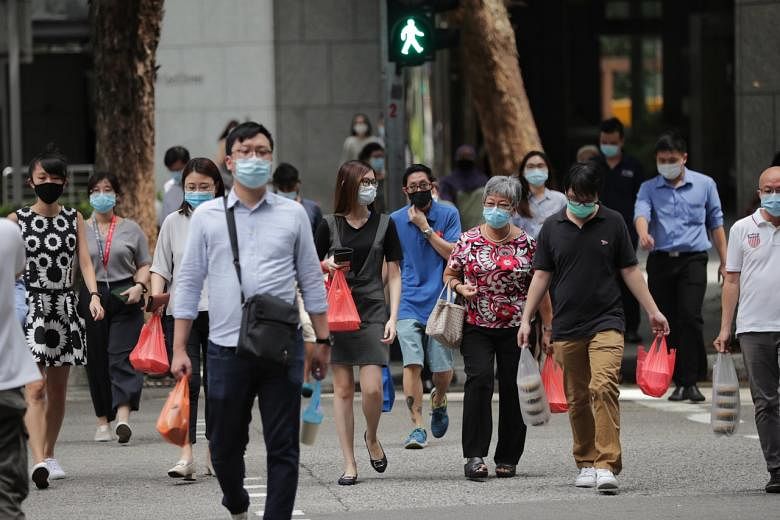SINGAPORE - Essential services and manual jobs, which by nature require a physical presence, offer some resilience in a world where office work can be potentially shifted to any country, said Nominated MP Walter Theseira on Thursday (June 4).
He made the point as he argued for a rethink of the model where Singaporeans are directed towards professional jobs, while migrant workers take on lower-status ones. Working from home has weakened the physical link between doing business in Singapore, and having that business actually be done by a Singaporean here, he told Parliament.
"Rather than develop an economy where most Singaporeans, despite their different skills and talents, feel compelled to earn degrees to hold PMET (professionals, managers, executives and technicians) jobs, we can build an economy that also includes many skilled and decently paid craftsmen, technicians, and service workers," said Associate Professor Theseira during the debate on the supplementary Fortitude Budget.
Commenting on the structure of Singapore's economy and its reliance on foreign labour, the Singapore University of Social Sciences economist said the country will face the question of how to restructure its economy and society for a "more sustainable and resilient future" in the coming months.
While vast sums from the reserves have been committed to preserve jobs and support those who have been laid off, Singapore must resist the temptation to use our reserves to "preserve" the economic model of the past in the hopes of returning to it once the coronavirus pandemic subsides, he said.
He likened the Republic's model of having Singaporeans take up PMET jobs and migrant workers other roles to running an army with only sergeants and officers - absent the foot soldiers - and questioned if it was the right approach for the country's future.
There is no shame in having Singaporeans take up manual and service jobs, he said. Rather, the only shame is if those who have power and influence fail to ensure that the conditions of work and wages in these jobs are such that Singaporeans find no dignity in taking them up, Prof Theseira said.
It is neither safe nor resilient to decouple essential service jobs that must physically take place in Singapore, from residency here, he emphasised.
While Singapore has been able to cope with this problem, which other global cities also face, because migrant workers and Malaysian workers who cross the border every day are willing to do many of these essential service jobs at wages that are "nearly unlivable" in Singapore, it is not sustainable to depend on wages remaining low in their home countries to "excuse us from finding a solution", Prof Theseira added.
Singapore's present economic structure and migrant labour system has created entrenched interests which would be harmed by - and would therefore resist - attempts at reform, not just among business owners who hire foreign workers, but also Singaporeans who benefit from this system, he said.
Noting that it would be shortsighted to assume that our interests and comfort with the existing economic structure would not affect the quality of judgment for Singapore's future, Prof Theseira suggested that the representation on councils set up to tackle the challenges for Singapore's economy, such as the newly-formed National Jobs Council, be broadened beyond "the captains of industry and state".
It could include members who are rank-and-file workers, draw from sectors such as essential services and academia and engage the public "as equal partners in the creation of a new Singapore", he said.


